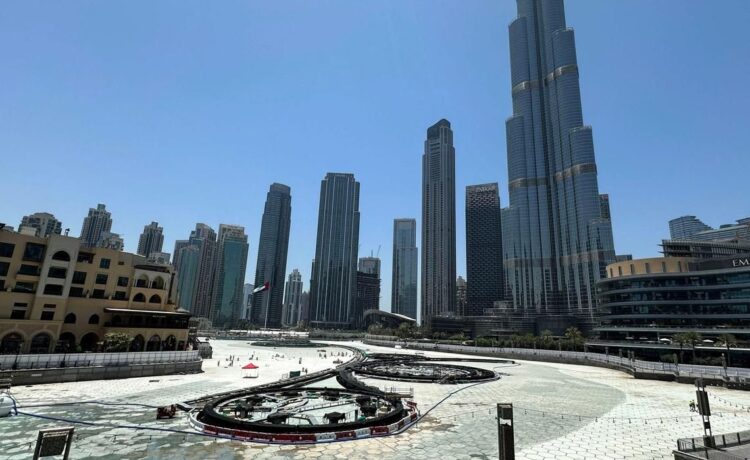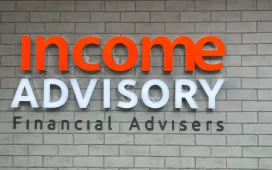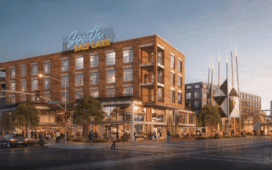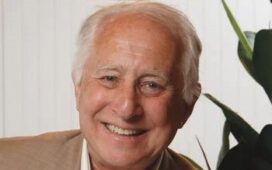Dubai’s real estate market – where property values have surged 70 per cent in the last four years – is starting to entice a slew of new Wall Street investors.
Brookfield Corporation is weighing plans to develop a mixed-use community in the Dubai Hills neighborhood, which would be its first residential real estate bet in the region, according to people familiar with the matter.
A property manager owned by Singapore’s Temasek Holdings is also currently out scouting for investments in the city, some of the people said.
They would be joining the likes of Goldman Sachs Group and the Asia-based asset manager Hillhouse Investment, which have both recently plowed millions into the emirate’s real estate.
They have all been drawn by the surge in activity taking place across Dubai. In the last 24 months, the city recorded eight office buildings sales – more than the previous 10 years combined.
The same goes for hotel transactions, where 15 deals took place in the past 30 months, according to the real estate consultancy Knight Frank.
“The past two years have been busier for us than the whole previous decade on the capital market side,” said Andrew Love, head of capital markets and commercial agency at Knight Frank.
“Demand is growing from oversees buyers who are coming in search of better returns and lower taxes.”
It is a far cry from the years following the financial crisis, when the image of hundreds of luxury cars left abandoned at Dubai International Airport by expats who could not keep up with their debts was etched into the minds of institutional investors around the world.
It had been a visceral reminder of the boom-and-bust nature of the real estate market in the city, where the population is still dominated by foreigners to this day.
Newfound Enthusiasm
Dubai’s turnaround started in the aftermath of the pandemic when the city reopened earlier than others, drawing scores of wealthy tourists and investors to its sunny shores. The government’s introduction of more liberal visa policies poured more fuel on that rally.
After Russia’s invasion of Ukraine, many of the country’s wealthy moved some of their cash to the city in an effort to shield their assets from sanctions and tighter capital controls at home.
They were soon joined by loads of newly-minted crypto millionaires and hedge fund managers who were lured to Dubai by the emirate’s low-tax regime and a time zone that allows workers to trade across Asian, European and US hours.
Taken together, the moves have sparked an unprecedented surge in residential and commercial real estate values.
In the first quarter of 2025, before US President Donald Trump’s trade war weighed on investor sentiment and contributed to a plunge in oil prices, Dubai notched record sales of homes valued above US$10 million (S$13 million).
Brookfield began furthering its foray into Dubai’s real estate market in 2020.
Back then, the asset manager – along with its partner Investment Corporation of Dubai – opened ICD Brookfield Place, Dubai’s largest office tower. The building quickly filled up and now commands the city’s highest commercial rents; in 2024, Brookfield was able to offload a 49 per cent stake in the tower in a deal valuing the property at US$1.5 billion.
Now, the Canadian firm is weighing plans to build residential towers alongside offices and retail space that it would make available to rent in Dubai Hills, an area known for its luxury villas.
Then there is Mapletree Investments, a property manager owned by Singapore’s sovereign wealth fund Temasek. The firm’s hoping to deploy about US$2 billion in the Gulf region after opening an office in Abu Dhabi in 2024, other people familiar with the matter said.
Inside Blackstone, executives have also held preliminary discussions across the Middle East region about commercial real estate investments, the people familiar with the matter said.
They would be in the company of a bevy of other big name backers that have invested across the city.
In April, Goldman’s asset management arm plowed US$25 million into the UAE’s Sunset Hospitality Group to allow the hotelier to expand its portfolio of resorts in the region.
Hillhouse in May made its debut investment in the region when its unit Rava Partners acquired the real estate of Hartland International School in Dubai, in a deal valuing the property at US$100 million.
In nearby Abu Dhabi, Aldar Properties – the city’s biggest listed developer – raised US$500 million from Apollo Global Management in January in one of the region’s largest-ever corporate hybrid private placements. The deal meant Apollo has led investments totaling US$1.9 billion in Aldar across four transactions since 2022.
The latest investment underscores Apollo’s “commitment to serving as a leading capital provider to the broader Abu Dhabi ecosystem,” Mr Jamshid Ehsani, a partner at Apollo, said in a statement announcing the news.
Representatives for Mapletree, Brookfield and Blackstone declined to comment.
Lack of Supply
One major problem remains for the overseas asset managers, insurers and pension funds looking to invest in the city’s real estate: finding revenue-generating assets that they are actually able to purchase.
To this day, many of the city’s buildings are owned by wealthy Emirati families or government entities, who are keen to hold onto the lucrative assets. That’s forcing many funds and investors to consider investing in new developments.
“The institutional money wants to be here and is starting to arrive, but the challenge is stock to sell,” Knight Frank’s Love said. “Most of the offices have been built by government and semi-government entities,” he said, adding that means there is a “lack of Grade A buildings to acquire, which means there is lack of market depth, which an institution requires to make it worth their while to enter the market”.
Getting Traction
So far, that risk has not hindered Mr Martin Linder, who’s Global Partners Limited has raised over US$350 million for its second fund after securing investments from American family offices, two German pension fund and a prominent Singaporean institution.
For Mr Linder, it is a stark reversal from when he was raising Global Partner’s first fund, when he spent six months in Boston trying to convince a myriad of investors of Dubai’s potential. At the time, few were swayed by a market they knew little about, he said.
Mr Linder ultimately did raise more than US$200 million that first go around and used it to construct two residential buildings on Dubai’s Water Canal. After that first fund started paying out investors over time, conversations with backers got easier.
“We get cold calls from high profile family offices from the United States,” Mr Linder said. “They’ve heard from other offices. Their allocations are also getting bigger.” BLOOMBERG
Join ST’s Telegram channel and get the latest breaking news delivered to you.





